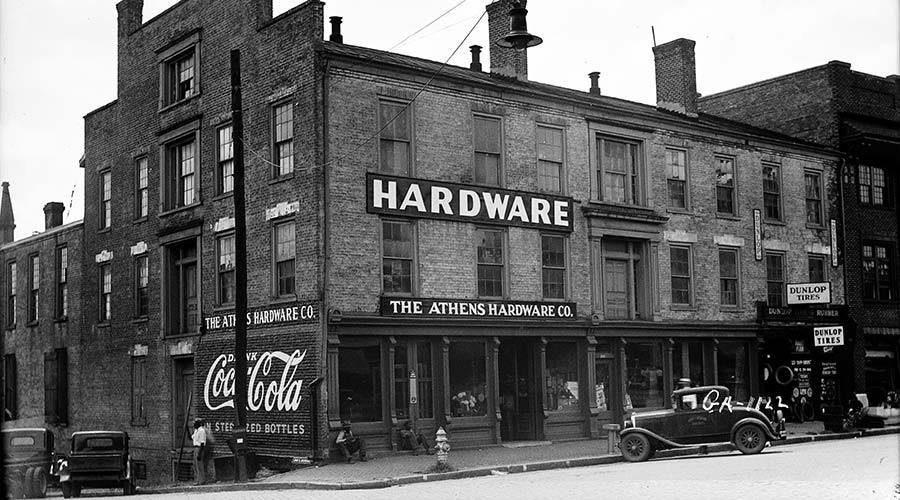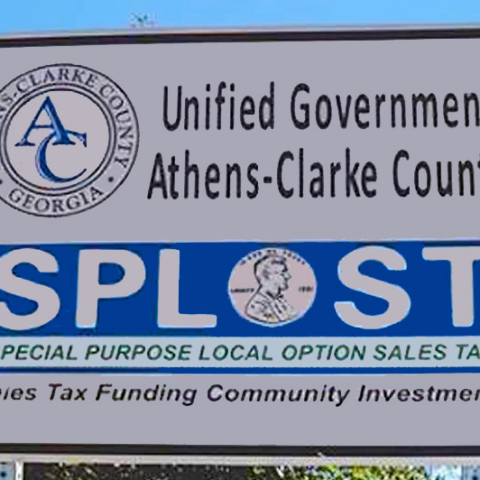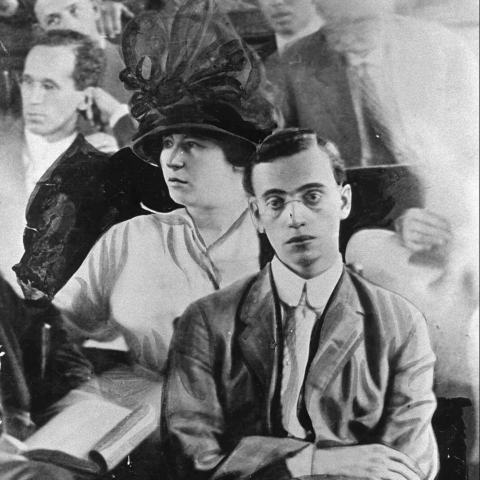This article was originally published in GPR’s Spring 2017 Magazine
The intersection of Washington and Hull streets in downtown Athens seems to many to be just another corner with its own set of bars and restaurants. Though many students proclaim themselves to be true Athenians, few know about the prolific history of this intersection and the impact it continues to have on the city. This spot is the epicenter for the “Hot Corner,” a community of historically black businesses and a cultural hub for Athens’ black residents. The Hot Corner’s history has reflected the changing social landscape of Athens since the 19th century, and today plays a very unique role in promoting an atmosphere of diversity and entrepreneurship in the Classic City.
The Hot Corner is a place in Athens where black businesses have traditionally thrived. It is geographically centered at the intersection of Hull and Washington Streets, but its total area really stretches all the way from Lumpkin St. to Milledge Ave.; this space incorporates all of the land where many black businesspeople have owned real estate and started companies. For Athens residents, especially during the mid-20th century, the Hot Corner was not only a business center but also a community space where they could come to socialize and shop in a welcoming setting. The Hot Corner has been the location of 66 catalogued black-owned businesses, and has been an important site for the achievements of black professionals in Georgia.
The Hot Corner has a long and prosperous history in the Classic City. While it has no official beginning, many consider it to have started in the late 19th century. Its beginnings likely coincided with the founding of the First African Methodist Episcopal Church in 1866, which began as a congregation of freed slaves. The group purchased land and had their church built in 1916. This building still stands on N. Hull St, and is a historic black landmark in Athens.
By the time the church was built, another landmark of the Hot Corner had also been established: the Morton Building. The history of the Morton reflects the economic opportunity that the Hot Corner provided for black Athenians during the first half of the 20th century, when segregation was a social norm across the South. In 1910, Monroe B. “Pink” Morton opened the building as both a theatre and an office complex. The building presented a place where black professionals could start their businesses and lease from a black property owner. The Morton has housed a plethora of important local businesses including: the Ellington D. Harris Drug Company, Athens’ first black-owned drug store; the practice of Dr. Ida Mae Hiram, Georgia’s first licensed black female dentist; and the practice of Dr. Blanche Thompson, the first African-American surgeon in Athens. Most locals today know the building for the theatre, which is the oldest African-American owned and built theatre in the United States.
From the 1950s to the 1970s, the Hot Corner played an intrinsic role in the Athens community. According to Mr. Homer Wilson, who runs Wilson’s Styling Shop on N. Hull Street, this thirty-year period was the peak of the Hot Corner’s economic draw. Businesses from all over the state would vie to open up shop on the Hot Corner, and shoppers would go there for the diverse array of stores, services, and products that could be found. It was in downtown Athens that many civil rights demonstrations took place, and many businesses at the intersection of Washington and Hull were important to the cause. Businesses like Mr. Wilson’s shop hosted meetings where local ministers and politicians could plan their campaigns, and provided a place where activists could come to rest and find refreshments during protests.
After the Civil Rights Era, the economic weight that the Hot Corner held in Athens began a slow decline as racial integration took hold across the city. Many black businesses that had originally opened downtown moved out into other areas of Athens. A few of the core buildings at the Hot Corner were torn down, such as the Samaritan Building and Union Hall. More white-owned businesses also began moving in, changing the culture of the area. Today, the culture of west downtown Athens looks quite different than it did 50 years ago. The Hot Corner is now a mix of historically black businesses, like the Morton and Wilson’s Styling Shop, as well as white-owned businesses that cater to more of a student crowd.
In 1999, Mr. Wilson started the Hot Corner Association, which works to promote the history of black entrepreneurship in Athens. The association is comprised of black business owners from Athens, whose companies make up the Hot Corner, and also individuals who are passionate about the history. Every year, the association puts on a weekend-long festival in early June called the Hot Corner Festival, with the goal of keeping alive the spirit of diversity that the Hot Corner has always contributed to Athens. The festival features attractions such as a barbeque competition, a vintage car show, and a concert series comprised of musically diverse acts. Mr. Wilson and the association are now playing a vital role in providing a place where everyone can celebrate the contributions that black Athenians have made to the city, and in keeping the intersection of Washington and Hull a welcoming place for everyone.
The Hot Corner has left an immeasurable impact on the city of Athens, one that many people in the community fail to realize. It provided a much-needed cultural haven for black Athenians for over 100 years, where people could come to shop, socialize, and support their families. It has also been a place where residents could demonstrate their stake in the community and use their influence to push for more rights and protections for the diverse population of the city. Ultimately, the legacy of the Hot Corner is one of empowerment.
This piece was composed with help from Mr. Homer Wilson, who kindly provided information about the history of the Hot Corner.


